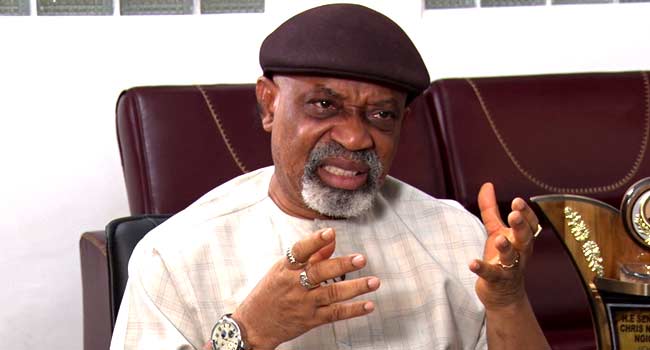Buhari Is The Most Labour-Friendly President – Ngige


The Minister of Labour and Employment, Dr. Chris Ngige, has described President Muhammadu Buhari as “the most labour-friendly president,” saying he signed the minimum wage bill into law and doused Labour’s restiveness occasioned by unpaid salaries.
He commended what he described as the resilience of Nigerian workers and their contributions to national development, noting that Buhari has been able to address the agitations of the workforce through provision of bailout funds to state government for the payment of salaries.
The minister said in a statement he signed on Tuesday that the theme of this year’s May Day celebration aligns with the vision of Buhari’s administration to improve workers’ welfare and build a buoyant economy capable of creating abundance for the people.
Ngige said, “I wish to send warm felicitations to the Nigerian workers on the occasion of 2019 Workers’ Day.
“The theme of this year’s celebration, which is, Another 100 years of struggle for jobs, dignity and social justice in Nigeria, aligns with the vision and efforts of President Muhammadu Buhari to not only uplift the lots of the Nigerian worker, but to also leave a legacy of a buoyant economy capable of creating a sustainable abundance for our people.
“The uniqueness of this year’s event manifests eventfully in its co-incidence with the centenary celebration of the International Labour Organisation, which Nigeria proudly pioneered as the first Country Office in Africa 60 years ago.
“While I sincerely salute the resilience of the nation’s workforce and its numerous contributions to national development, we owe plentiful accolades to the most labour-friendly President of the Federal Republic of Nigeria, who took practical steps to douse the restiveness in the labour force he inherited four years ago due to unpaid salaries and allowances.
“He released bailout funds at the state and federal levels, and capped it all with a new National Minimum Wage for the Nigerian working class in public and private sectors.”








